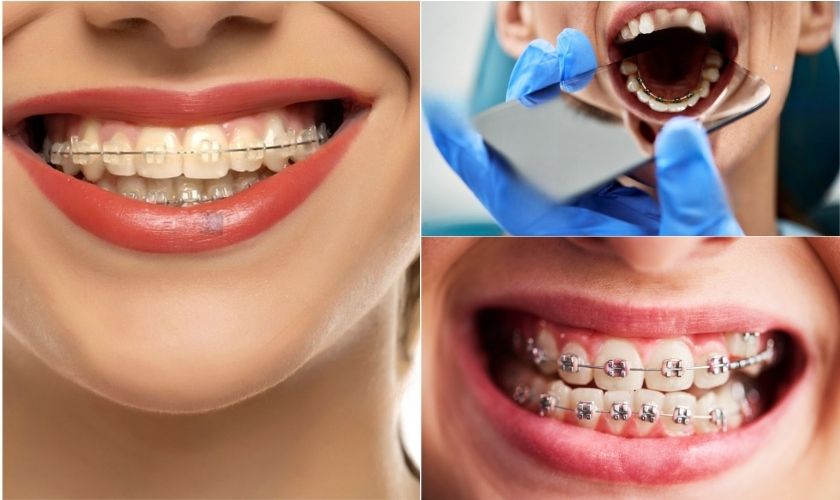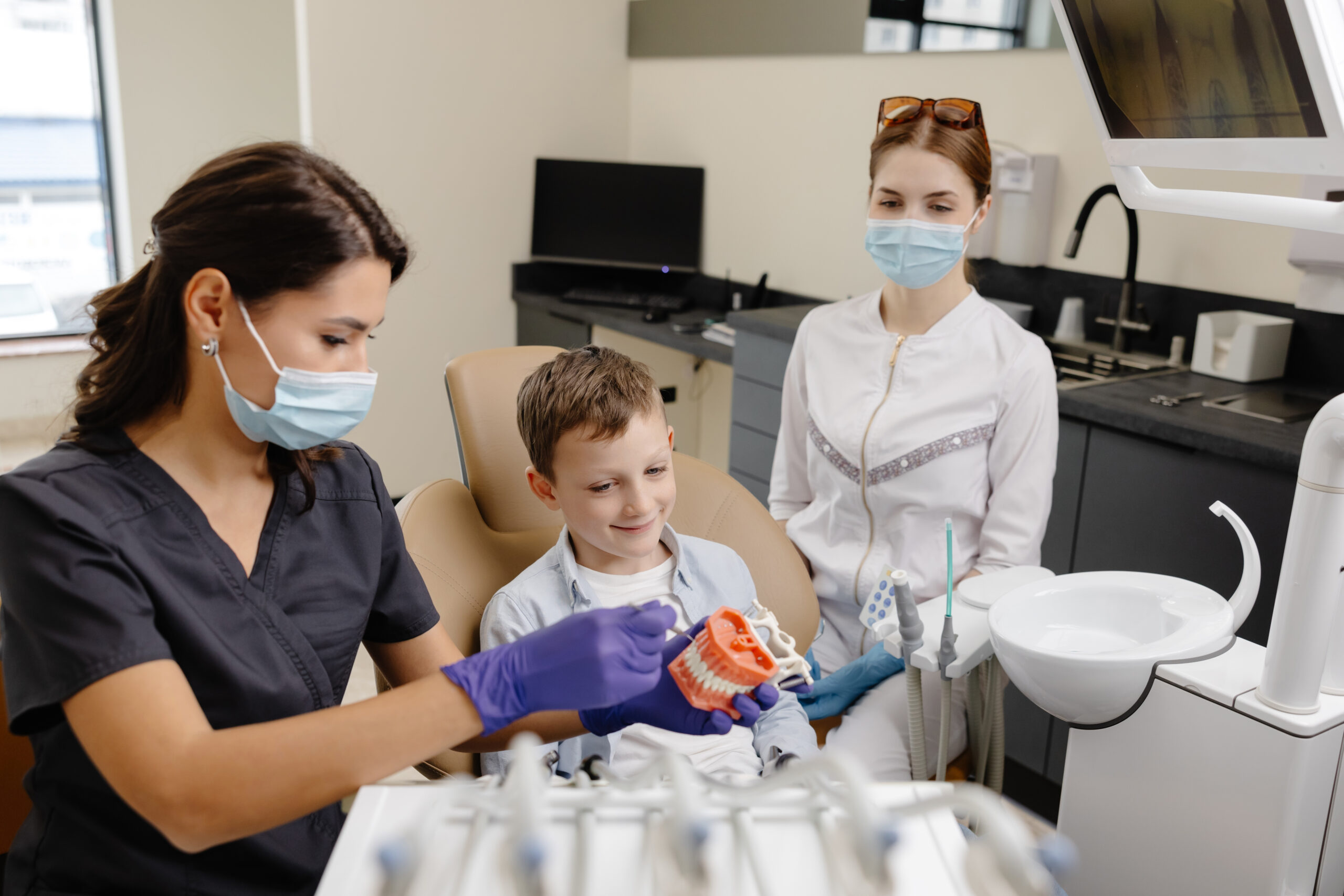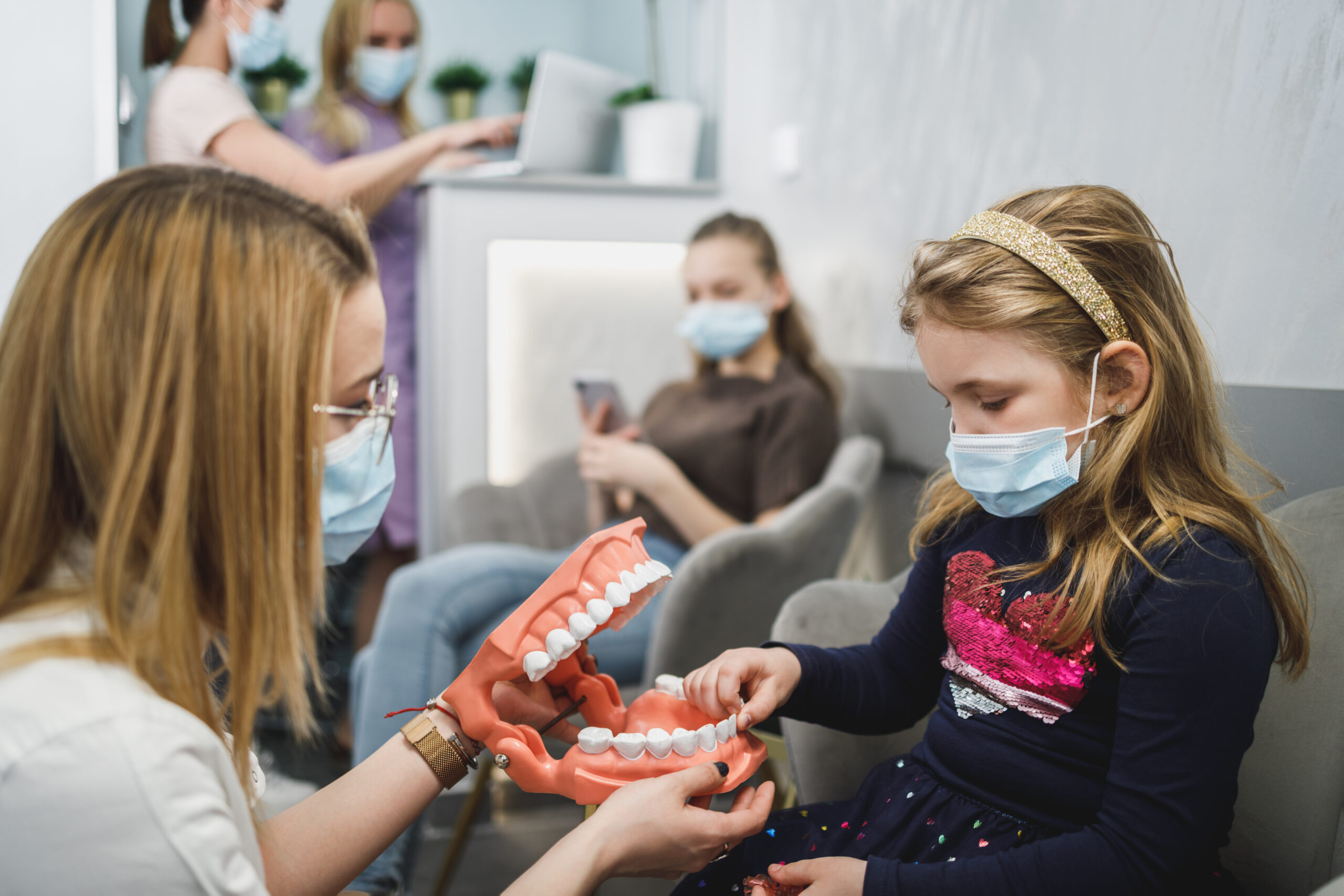Your child’s healthy mouth plays a vital role in eating properly, speaking clearly, and developing permanent teeth correctly. Dental problems in children happen often, and early management helps maintain good oral health. Research shows that good dental habits during childhood prevent dental issues as they grow older.
Parents need to watch their children brush teeth until they can use a toothbrush properly. Regular trips to the dentist help spot and treat problems like tooth decay early. Healthy baby teeth substantially improve a child’s overall health and well-being. This piece covers the right time to schedule your child’s first dental visit, common dental issues you might face, and ways to prepare for that first important appointment. Starting good oral health habits early creates a foundation for healthy smiles that last a lifetime.
Why Early Dental Visits Matter
Your child’s dental health starts with early visits that build the foundation for lifelong oral health. The American Academy of Pediatric Dentistry recommends a dentist visit by your child’s first birthday or when their first tooth appears. These early appointments provide vital benefits beyond basic teeth checking.
Helps detect early signs of child teeth problems
Scheduling dental visits when your child is young helps catch problems early. Tooth decay can start right after teeth emerge and spreads faster without proper care. Dental professionals can spot warning signs like white or brown spots on teeth that might show early cavity formation.
Regular check-ups help dentists find potential problems before they become serious. The Centers for Disease Control and Prevention reports that more than 40 percent of children have decay before kindergarten. Washington State’s numbers are even more concerning – nearly 60 percent of elementary school children deal with preventable dental decay.
Builds comfort and trust with the dentist
Children develop positive feelings about dental care when they start visits early. These original experiences shape how your child thinks about dental visits throughout life. Research shows that children who have positive early dental experiences feel more confident about dentist visits and take better care of their teeth.
Your child’s trust in their dentist is vital for good dental care. Studies show that strong relationships ease anxiety, encourage security, and improve children’s involvement in oral health care. Dentists build this trust by being honest about procedures and using language kids understand.
Supports healthy oral habits from the start
Early dental visits are a great way to get education on proper oral hygiene. Dentists show the right way to brush and give advice specific to your child’s needs.
Good habits that start young often continue into adulthood. Regular preventive care—including professional cleanings and fluoride treatments—reduces the need for invasive procedures that can get pricey later.
Early dental visits create strong foundations for your child’s dental health and prevent the cycle of dental anxiety that often starts with negative early experiences.
When Should Your Child First Visit the Dentist?
Your child’s first dental visit is a vital step to prevent teeth problems. Many parents want to know the right time for this significant milestone.
Recommended age for first dental visit
The American Academy of Pediatric Dentistry and other dental associations suggest booking your child’s dental visit within 6 months of their first tooth. The visit should happen no later than their first birthday. This might seem too early for many parents. Research shows that kids who see a dentist by age one have fewer tooth decay issues compared to those who wait. Each year you delay past your child’s first birthday doubles their risk of tooth decay.
Signs your child may need an earlier visit
The one-year mark serves as a general guide, but some situations need an earlier dental checkup:
- White spots or discoloration on teeth that might indicate early decay
- Visible brown or black spots that could be cavities
- Bad breath that stays even after brushing
- Pain or sensitivity with hot, cold, or sweet foods
- Swollen or bleeding gums
- Irregular tooth development or delayed eruption
- Thumb sucking or pacifier habits that worry you
Studies reveal that 21% of American children aged 2-5 already have cavities. This fact highlights why early dental care matters so much.

What happens during the first appointment
A typical first dental visit takes 30-45 minutes. The dentist checks your child’s teeth, jaws, bite, gums, and oral tissues. They look at development patterns and spot any possible issues. Some kids might get a gentle cleaning based on their age and needs.
This first visit gives parents a great chance to learn. Your dentist will show you proper cleaning methods and talk about fluoride needs. They’ll also cover topics like teething, pacifier use, thumb-sucking, and foods that keep teeth healthy. The visit helps create a “dental home” where your child gets consistent care and preventive education.
Common Dental Problems in Children
Children often face dental problems even with good home care. Early detection of these issues helps prevent complications through quick treatment.
Tooth decay and cavities
Dental caries remains one of the most common childhood problems. About one in four children aged 2-5 have experienced dental caries in their baby teeth. Bacteria start the decay process by turning sugars into acids that damage tooth enamel and create cavities. Parents should watch for white spots that later turn brown, sensitivity to hot and cold, and pain during chewing.
Thumb sucking and pacifier use
Long-term thumb sucking or pacifier use can harm dental development. Regular pressure can push front teeth outward, create open bites (teeth don’t overlap properly), or cause crossbites (upper teeth fit inside lower teeth). These habits can also change the jaw’s shape and affect how a child speaks.
Gum issues and early gingivitis
Children can develop gingivitis, which makes gums red, swollen and likely to bleed during brushing. Parents should take early symptoms seriously since untreated gingivitis can lead to serious gum disease. Poor oral hygiene and plaque buildup near the gumline cause most cases.
Delayed tooth eruption
Babies typically get their first teeth at 6 months, though this can vary from 4-15 months. A dental check-up makes sense if your baby hasn’t developed teeth by 9 months. Genetic factors, premature birth, or poor nutrition might delay tooth eruption.
Teeth grinding (bruxism)
Between 20-30% of children grind their teeth, but most eventually stop. Stress, teeth that don’t line up properly, or pain often trigger this behavior. Watch for grinding sounds during sleep, jaw pain complaints, and worn down tooth enamel.
Malocclusion and misalignment
Malocclusion (teeth that don’t line up correctly) affects more than half of people worldwide. Children inherit this condition or develop it from habits like thumb sucking. They might find it hard to eat, speak, or breathe through their nose.

How to Prepare Your Child for the Dentist
A positive foundation for lifelong dental health starts with proper preparation for your child’s first dental appointment. The right approach can turn fears into excitement.
Talk positively about the visit
Your child will mirror your attitude toward dental visits. Kids quickly sense their parent’s anxieties, so stay calm and supportive throughout the process. Simple and encouraging language helps build understanding without creating fear. We focused on how dentists keep teeth strong rather than discussing painful procedures.
Read books or watch videos about dental visits
Stories and visual aids work best for children’s learning. Books like “The Berenstain Bears Visit the Dentist,” “Just Going to the Dentist” by Mercer Mayer, and “Elmo Visits the Dentist” make the experience feel familiar. Yes, it is helpful to read together about dental visits as this reduces anxiety and builds confidence. You can find many child-friendly videos online that show dental visit procedures.
Choose a pediatric dentist
Pediatric dentists have specialty training beyond dental school that focuses on child development and psychology. Their offices create child-friendly spaces with colorful decorations and fun activities. You should schedule a pre-visit tour so your child can get comfortable with the setting.
Bring comfort items if needed
Your child’s favorite stuffed animal, blanket, or toy can provide security during the appointment. These familiar objects create a safe feeling in new environments.
Conclusion
Early dental visits lay the groundwork for your child’s healthy smile that lasts a lifetime. Dental professionals suggest booking the first appointment when your child turns one or within six months after the first tooth shows up, and with good reason too. These early checkups help prevent common dental problems before they become serious.
Your own attitude about dental visits shapes how your child sees them. Kids who feel good about dental care early on usually keep better oral health habits throughout their lives. Pediatric dentists also create welcoming spaces that cater specifically to young patients.
Problems like tooth decay, thumb sucking, and gum issues might seem small now, but they can affect your child’s oral development when left untreated. Regular checkups help dentists spot these issues early and guide you on proper brushing methods and food choices.
Parents need to do more than just schedule appointments. You can help ease your child’s anxiety by reading books about dentists together, talking about visits in a positive way, and bringing their favorite toys along. Creating good dental habits during childhood builds routines that stick through adulthood.
A healthy smile does more than brighten your child’s face – it helps them eat well, speak clearly, and develop their permanent teeth properly. Making dental care a priority from the start becomes one of the best gifts for your child. Those baby teeth need just as much care as the permanent ones that will replace them.
FAQs
Q1. At what age should I schedule my child’s first dental visit?
The first dental visit should be scheduled by your child’s first birthday or within 6 months after their first tooth appears. Early visits help prevent dental issues and establish good oral health habits.
Q2. What happens during a child’s first dental appointment?
The first appointment typically lasts 30-45 minutes. The dentist will examine your child’s teeth, jaws, bite, and gums, possibly perform a gentle cleaning, and discuss proper oral care techniques with you.
Q3. How can I prepare my child for their first dental visit?
Talk positively about the visit, read books or watch videos about dental visits, choose a pediatric dentist, and bring a comfort item if needed. Your positive attitude can significantly influence your child’s perception of dental care.
Q4. What are some common dental problems in children?
Common dental issues in children include tooth decay, cavities, gum problems, delayed tooth eruption, teeth grinding, and misalignment. Regular check-ups help detect these problems early.
Q5. Why are early dental visits important for children?
Early dental visits help detect potential issues before they become serious, build trust between the child and dentist, and support healthy oral habits from the start. They also significantly reduce the likelihood of needing invasive dental procedures later in life








